Parasocial Relationship: What Is It?
Social media has taken itself to the next level with livestreaming. Nowadays, people record themselves performing activities as they converse with viewers.
Eventually, both sides form a connection known as a parasocial relationship. It continues to transform how people communicate with each other, so you should understand how it works.
This article will discuss parasocial relationships. It will explain where the concept started and how it works. More importantly, you will see their positive and negative effects online.
Parasocial relationships in the 50s
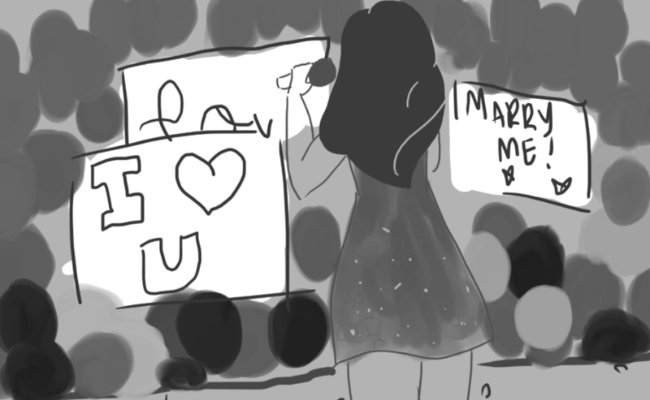
Photo Credit: www.baronnews.com
More people are discussing this type of human connection nowadays due to the internet. Contrary to popular belief, the concept started in 1965.
Donald Horton and R. Richard Wohl coined the term to describe how mass media users acted like they had a normal relationship with a celebrity.
In other words, parasocial relationships occur when people emotionally attach to a media character who does not reciprocate their feelings.
For example, someone may feel like they have hung out with a radio personality despite never meeting in person. Believe it or not, these connections are psychologically normal and healthy.
Dr. David Giles, a Reader in Media Psychology at the University of Winchester, agrees:
“They are meaningful, sometimes as meaningful as actual social relationships because even people we don’t know can have profound significance in our lives, as inspiration or reassurance.”
For example, the late Hollywood actor Robin Williams has been a source of inspiration for millions worldwide.
Most people know that interactions within parasocial relationships are not real. However, some may give in to the illusion and believe they are.
Cynthia Vinney, a psychology writer for ThoughtCo, said, “This response does not mean that the individuals believe the interaction is real.”
She added, “Despite media consumers’ knowledge that the interaction is an illusion, however, their perception will cause them to react to the situation as if it were real.”
Some parasocial relationships can be problematic. Dr. Giles cited the public reaction to the death of Princess Diana in the 1990s.
People grieved over her passing despite never meeting her face-to-face. Worse, some struggled to continue their daily routines.
The digital evolution of parasocial relationships
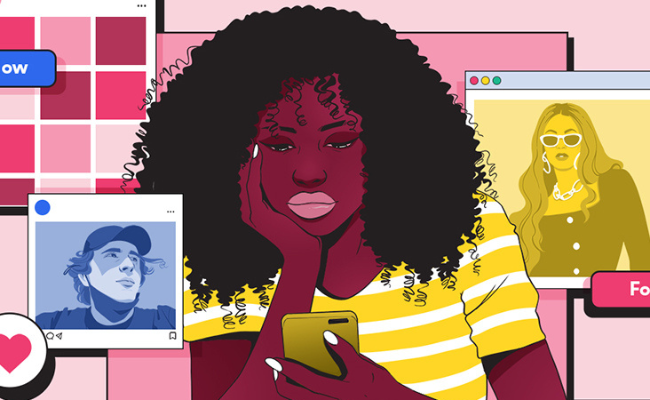
Photo Credit: greatist.com
We have established that these connections have existed for decades. Nowadays. Social media supercharged and expanded parasocial relationships worldwide.
Let us start with social media. You can become one of Kanye West’s Twitter followers or a subscriber to Mr. Beast (Jimmy Donaldson) on YouTube.
YouTubers start and conclude their videos with greetings and farewells. Also, you may send them messages, and they may reply. Some YouTubers even pin and highlight comments.
Livestream services like Twitch, Instagram Live, and recently TikTok LIVE let you speak to online personalities in real time.
The celebrities may record themselves on camera while speaking to a live audience. Meanwhile, they could respond to chat messages from followers.
Negative impact on viewers
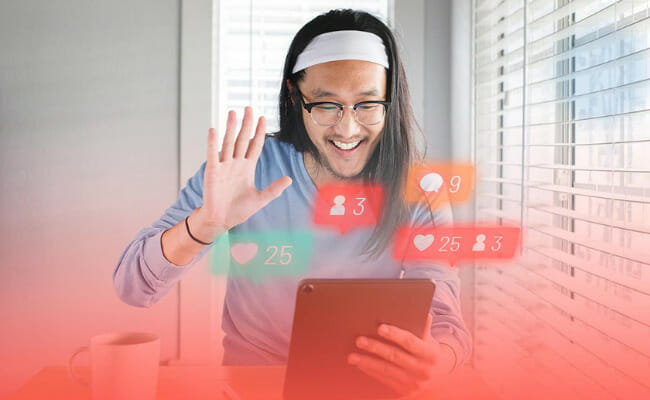
Photo Credit: gamequitters.com
Parasocial relationships can become an obsession. Some people feel entitled to have replies to their messages. Worse, others inquire about intimate details.
For example, let us read a testimonial from fashion influencer Stephanie Yeboah regarding her experience:
“I’ve had people I’ve never spoken to send me voice messages out of the blue asking me why I haven’t responded to their latest messages… I’ve also had people ask for details on people I’ve shown on my platforms, such as friends or family.”
People usually have lives outside of social media. However, some viewers assume that a celebrity’s online presence and real-world routine are the same.
Some viewers may feel betrayed by the discrepancies and lash out at their favorite celebrities. In other words, they may use cancel culture on online personalities.
Viewers may post online videos with a celebrity’s name followed by the word “exposed.” Often, they exaggerate how different people are on social media and in real life.
Note that these negative effects existed before social media. For example, rapper Eminem released a song titled “Stan,” a portmanteau of the word “stalker” and “fan.”
It discusses an Eminem fan sending letters to the music icon. It ends with the fan ending his life after several months of never receiving a reply.
Negative impact on influencers
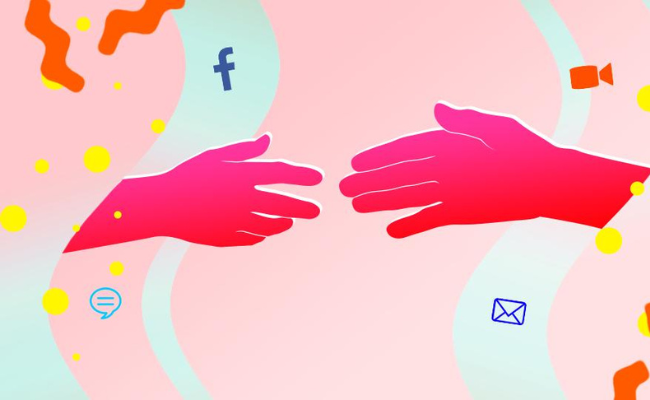
Photo Credit: stylecaster.com
It is easy to assume that online personalities or influencers control their parasocial relationships. However, they can also have problems if these become unhealthy.
It can happen when influencers become obsessed with their online following. After all, having millions of viewers giving you likes and hearts on social media can feel good.
Eventually, these people may rely on their followers for their self-esteem. Some may continue to do everything their fans want, no matter how bad the requests may be.
Influencers may also gain stalkers as their popularity increases. For example, Twitch streamer Kyedae explained on YouTube that she allegedly did not attend Twitch Con to avoid an obsessed fan.
They may also feel harassed as fans nitpick and call out every minute detail of their lives. Those folks may feel betrayed if online influencers act differently from their social media personas.
Celebrities before the internet have also become obsessed with their parasocial relationships. Billy Wilder’s 1950 film Sunset Blvd. explained this phenomenon.
It starred Gloria Swanson as Norma Desmond, a has-been film star who became obsessed with fan mail. As a result, she believed she was still a prominent figure.
Eventually, the movie reveals that she does not have followers anymore. The letters came from her butler Max.
Positive effects on people
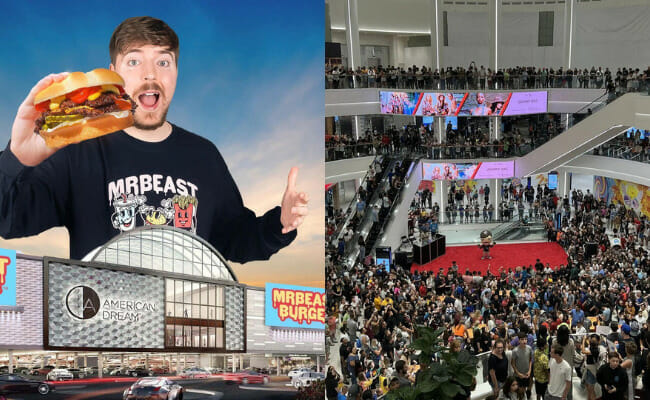
Photo Credit: www.sportskeeda.com
As mentioned above, parasocial relationships can benefit people. For example, Mr. Beast opened a restaurant during the pandemic.
It attracted visitors to struggling commercial districts by having mall locations. Also, the Mr. Beast Restaurant paid small businesses to become its ghost kitchens.
In other words, they cook the Mr. Beast meals. Many fans bought at these outlets to support their favorite content creator.
The popularity made non-fans curious, so they became customers too. As a result, the influencer helped these small businesses stay afloat during the lockdowns.
Mr. Beast also helped the environment with the fundraiser #TeamSeas. It raised over 32 million US dollars for the Ocean Conservancy so that it could clean our waters.
Parasocial relationships can have wider public benefits and more personal impacts. For example, Andrew Tate has inspired millions of men worldwide to improve themselves.
We cannot end this discussion about parasocial relationships without talking about virtual YouTubers or Vtubers.
These are regular people who appear as 2D avatars. They adopt a persona and talk to fans, usually while playing a video game or performing other activities.
For example, Filipinos have been enjoying cooking livestreams from Vtuber Millie Parfait. The fans like the online banter and love the global representation of Filipino cuisine.
Conclusion
Parasocial relationships have been a trending online topic. Many people see it as a source of unhealthy obsession for fans and influencers.
On the other hand, they can be a source of fun and inspiration. It all depends on how you handle your relationships. As mentioned, even real-life relationships can have positive and negative effects.
You can handle them properly by focusing on self-improvement. Fortunately, Inquirer USA articles can help with handy tips on various topics.

